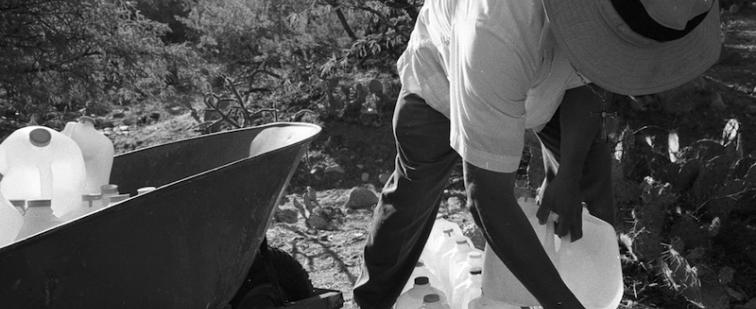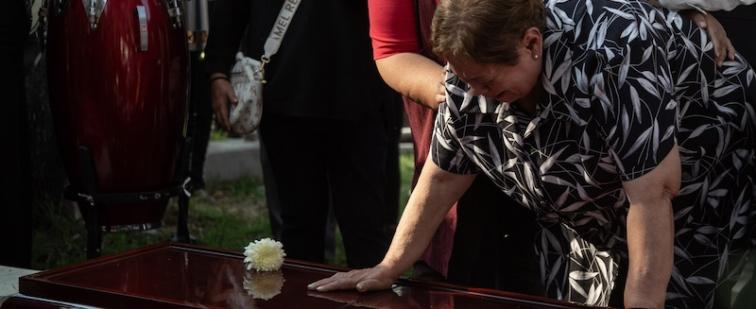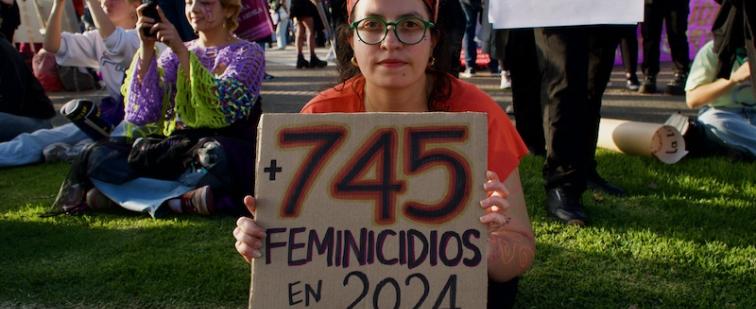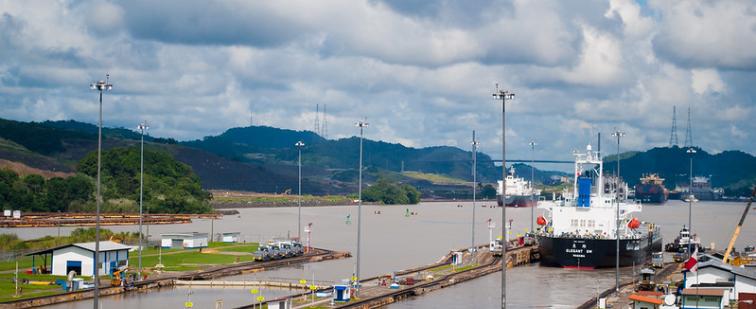Home
The political crisis currently unfolding in Guatemala reads like the script of a Hollywood summer blockbuster. The Economist even quipped that it was like something out of Gabriel García Márquez’s novella Chronicle of a Death Foretold. But this is far from magical realism; in fact, it was the virtual reality of interactive networking websites – collectively labeled by some "Web 2.0" – that may have brought a presidency to its knees.
The Mexican government's increasing crackdown on social movements underscores the urgency for the Obama administration to move away from a failed drug war model. The military aid Washington is sending across the border is facilitating a militarization of Mexican society that will likely cause greater suppression of political dissent.
Grants for biofuel crop production from the US Agency for International Development (USAID)—paid for through Plan Colombia, the multibillion-dollar US aid package aimed at fighting the drug trade—appears to have put drug-war dollars into the hands of a confessed paramilitary and two accused narco-traffickers, in possible violation of federal law. USAID internal documents, corporate filings and press reports raise questions about the agency’s vetting of applicants, in particular its ability to detect their links to narco-paramilitaries, violent crimes and illegal land seizures.
Ecuador’s leading social movements remain skeptical about whether Correa's re-election will translate into the deep social changes promised by the country’s new Constitution. Ecuador’s indigenous federations are still reeling from a bitter fight over a controversial mining law that the President pushed through the interim Congress in January. Many indigenous groups withheld their support for Correa in the April general elections, possibly costing his party a majority in the newly established unicameral National Assembly.
El Alto-based hip-hop artist Abraham Bojorquez died early in the morning on Wednesday, May 20 in El Alto, Bolivia. He was killed when a bus hit him as he walking home. Abraham, 26 years old, was a member of the popular hip-hop group Ukamau y Ké. His music blended ancient Andean folk styles and new hip-hop beats with lyrics about revolution and social change.
Recently declassified documents obtained by investigators Jeremy Bigwood and Eva Golinger reveal that the U.S. Agency for International Development (USAID) has invested more than $97 million in “decentralization” and “regional autonomy” projects and opposition political parties in Bolivia since 2002, showing USAID has funded and fomented separatist projects promoted by regional governments in Eastern Bolivia.
La Vía Campesina movement continues to grow worldwide. Last October, the movement held its Fifth International Conference in Mozambique, strengthening its presence in Africa. A few years earlier, the organization's headquarters was moved to Jakarta and is now under the leadership of the Indonesian Peasant Union, making inroads in Asia, where the majority of the world’s rural peoples live. While Latin American organizations continue to play an important leadership role in La Vía Campesina.
Recent events perhaps demonstrate what a Bush administration official meant when he said that Washington planned the "armoring" of NAFTA. As Mexican security budgets inflate with U.S. military aid, rights groups say security forces are increasingly targeting activist and community groups opposed to foreign-financed and government-backed megaprojects. In the southern state of Oaxaca, these resource conflicts seem inevitable.
Human rights activist in Guatemala continually come up against the country's stubborn structures of impunity, but recent events have renewed their hopes that the tide is finally beginning to turn toward truth and justice. And behind them is a mounting body of newly released documentary evidence. These emerging victories, however, continue to come at a price: Brutal reprisals and violence against human rights activists in Guatemala are still rampant.
How can we understand the prospects for U.S.-Cuba relations with the election of a Democratic president to the White House and a change in leadership in Cuba? What domestic constraints and opportunities does Barack Obama encounter as he seeks to open new channels of dialogue with Cuba? The domestic political ground is shifting and relations between Latin American nations are also in flux. Both factors will play a role in shaping U.S. relations with Cuba and with Latin America more broadly.











